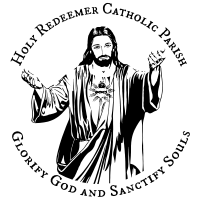The Eucharist, Part 10
Jesus Christ: Yesterday, Today, and Forever ~
Today we continue our twenty part series on the Eucharist. In case you missed the first three, you can find them here. This is in keeping with Archbishop Etienne’s pastoral letter on the Eucharist that you can find here (in case you missed it). Enjoy.
May God Bless You,
Fr. Thomas Nathe
Trent Horn, 20 Answers – The Eucharist. Catholic Answers Press. 2015
Get your own copy from Catholic.com
Question #10:
Why do Catholics sacrifice Christ in the form of the Eucharist when Scripture plainly teaches that Christ has been sacrificed “once and for all”?
There is no contradiction in Masses being called a holy sacrifice and Scripture’s testimony that Christ was offered as a sacrifice once on Calvary to atone for sins. The resolution of this apparent contradiction is found in the fact that Christ is not sacrificed anew at every Mass, but re-presented to the Father for the atonement of sin. According to Pope St. John Paul II, “The Eucharist is indelibly marked by the event of the Lord’s Passion and death, of which it is not only a reminder but the sacramental re-presentation. It is the sacrifice of the Cross perpetuated down the ages.”
The letter to the Hebrews is clear that, unlike the animal sacrifices of the Old Testament, Christ’s sacrifice was perfect and does not need to be repeated on a continual basis. In other words, Christ does not have to be crucified again and again in order to atone for our sins. Hebrews 9:27-28 says that “just as it is appointed for men to die once, and after that comes judgment, so Christ, having been offered once to bear the sins of many.”
Romans 8:34 says, “Christ Jesus who died – more than that, who was raised to life – is at the right hand of God and is also interceding for us [emphasis added].” But if Christ’s one sacrifice was accomplished at the Crucifixion and was completely sufficient to take away sin, then why would Christ be interceding for Christians thirty years after his Crucifixion, when Paul wrote his letter to the Romans?
The answer lies in the distinction between “bloody” and “unbloody” sacrifice. Christ offered only one “bloody” sacrifice, when he, the sacrificial victim, was painfully slain. This one perfect sacrifice is continually re-presented to the Father in an unbloody way through the miracle of the Eucharist. Hebrews 13:10 even reveals that Christians “have an altar from which those who serve the tent have no right to eat.” If Christ were only “sacrificed once,” then Christians would not have any sacrificial altars since there would be no need for other sacrifices. Instead, this means that Jewish priests who serve in the temple may not partake in the unbloody Eucharistic sacrifice that is offered on Christian altars.
The early Church Fathers taught that the Eucharist was a sacrifice offered by priests for the forgiveness of sins. The first-century author of the Didache advised Christians to “break bread and offer the Eucharist; but first make confession of your faults, so that your sacrifice may be a pure one.” The Church Fathers understood that Christ’s role as our high priest (Heb. 4:14-16) did no take away from the new ministerial priesthood in Christ. In the third century, St. Cyprian of Carthage said, “If Christ Jesus, our Lord and God, is himself the high priest of God the Father; and if he commanded that this be done in commemoration of the himself, then certainly the priest, who imitates that which Christ did, truly functions in place of Christ.”
St. Augustine gives us a clear example of how our belief in Christ’s unique sacrifice on the cross can be represented in the liturgy of the Mass. He said, “Was not Christ once for all offered up in his own person as a sacrifice? And yet, is he not likewise offered up in the sacrament as a sacrifice, not only in the special solemnities of Easter, but also daily among our congregations; so that the man who, being questioned, answers that he is offered as a sacrifice in that ordinance, declares what is strictly true? For if sacraments had not some points of real resemblance to the things of which they are the sacraments, they would not be sacraments at all.”

